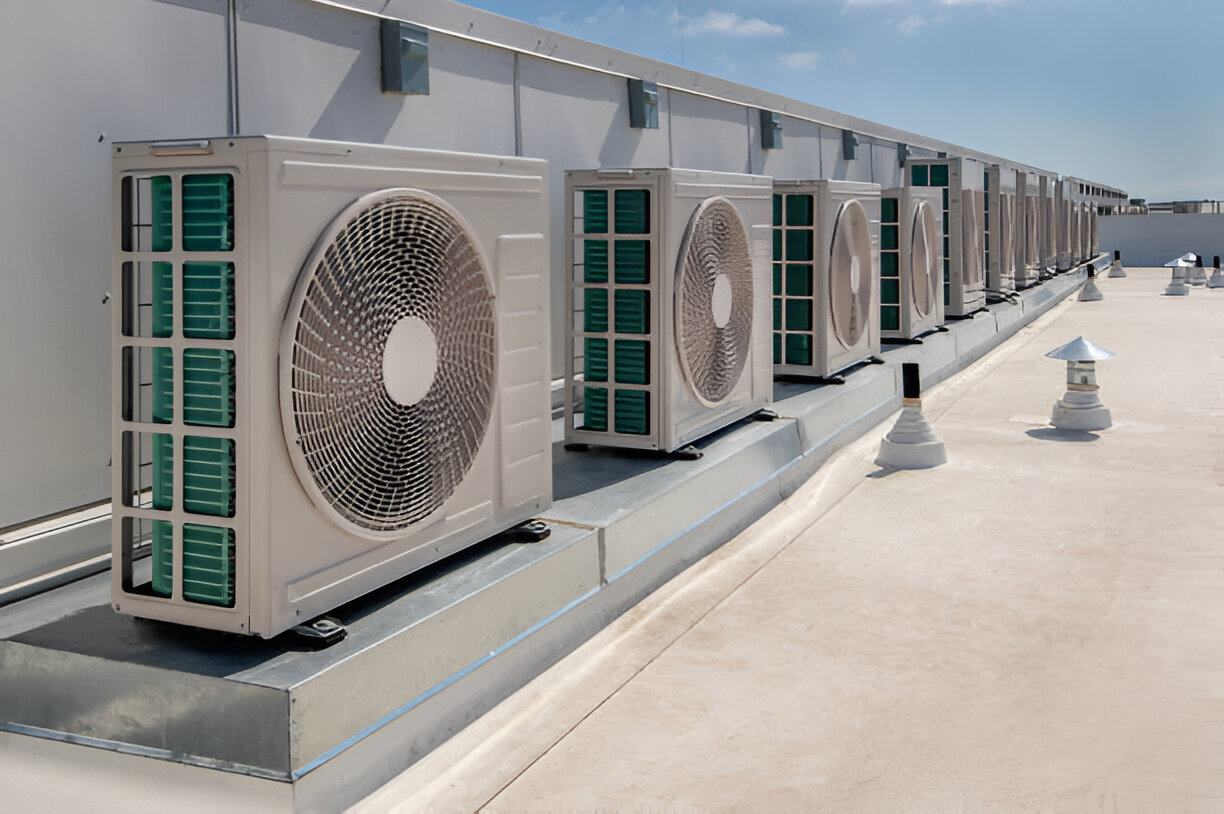HVAC Company in Highlands Ranch, CO
Your home’s heating, cooling, and indoor air quality matter more at Highlands Ranch elevation and climate. With cold, dry winters, intense summer sun, and seasonal wildfire smoke, local HVAC systems face unique stresses.

Why local expertise matters in Highlands Ranch, CO
Highlands Ranch sits at roughly 6,000 feet elevation, which changes equipment performance and airflow characteristics compared with lower-altitude areas. Homes here often need correctly sized systems to handle rapid temperature swings, efficient cooling for hot sunny days, and humidification strategies for dry winters. Wildfire smoke and dust seasons also increase demand for enhanced filtration and air-cleaning solutions. A local HVAC company understands these regional patterns, permitting and codes in Douglas County, and which equipment holds up best under local conditions.
Common HVAC problems in Highlands Ranch homes
- Furnace failures or degraded heating capacity during cold snaps
- Heat pump short-cycling or icing during spring/fall temperature swings
- Reduced cooling efficiency and higher electric bills during hot, sunny periods
- Refrigerant leaks causing diminished AC performance and compressor stress
- Poor indoor air quality from wildfire smoke, pollen, and low humidity in winter
- Duct leakage and poor airflow leading to uneven temperatures and higher energy use
- Thermostat calibration, wiring issues, or control-system faults
Each issue has a predictable set of causes and a range of repair or upgrade options. Understanding the root cause helps avoid repeated service visits and unnecessary part replacements.
How we diagnose problems — clear, methodical process
- Initial system history and symptom review: technician documents runtime patterns, recent noises, and comfort complaints.
- Visual and safety inspection: combustion safety, venting, wiring, and condensate drainage checked first.
- Performance testing: static pressure, airflow measurements, refrigerant pressures, and temperature splits to identify inefficiencies.
- Combustion and CO testing for gas equipment: verifies safe operation and correct combustion values.
- Load and sizing review: Manual J load considerations when replacement is recommended to ensure correct equipment sizing for Highlands Ranch homes.
- Written findings and options: technicians present prioritized repair and replacement choices with expected outcomes and warranty information.
This step-by-step approach reduces guesswork and focuses repairs on the true causes rather than symptoms.
Repairs, replacements, and upgrades explained
- Repair: targeted replacement of failed components (motors, compressors, igniters, valves) after confirming root cause. Repairs include testing post-service to verify performance.
- Replacement: when systems are beyond cost-effective repair or nearing end of life, properly sized replacements improve reliability and efficiency. Installations include ductwork assessment, necessary modifications, and manufacturer registration for warranties.
- Upgrades: smart thermostats, variable-speed blowers, two-stage compressors, high-efficiency furnaces, heat pump conversions, and whole-home filtration or UV systems address comfort, efficiency, and indoor air quality needs in Highlands Ranch.
- Preventive sealing and insulation: duct sealing and insulation reduce energy loss in unconditioned spaces and improve system balance.
Quality installations use OEM parts, follow manufacturer specifications, and include system testing and performance verification.
Licenses, insurance, and technician qualifications
- Proper local and state licensing and required permits for mechanical work and replacements in Douglas County.
- General liability insurance and worker’s compensation coverage for homeowner protection.
- EPA Section 608 certification for refrigerant handling.
- Industry certifications such as NATE (North American Technician Excellence) and ongoing manufacturer-specific training (e.g., heat pump, gas furnace, and control technologies).
- Background-checked, drug-screened technicians who receive regular safety and diagnostic training.
These safeguards protect homeowners and ensure work meets code and safety expectations.
Safety, quality standards, and warranties
Safety practices include combustion testing, CO monitoring, electrical lockout/tagout for repairs, and refrigerant recovery in compliance with EPA rules. Quality standards emphasize proper airflow, correct refrigerant charge, and duct integrity. Workmanship and equipment warranties are documented in written proposals so homeowners can compare coverage and parts warranties without surprises.
Pricing philosophy and financing options
Pricing is presented as transparent, itemized proposals that explain labor, parts, and recommended alternatives (repair vs replace). The emphasis is on value—selecting durable solutions that reduce long-term energy costs and service frequency. Third-party financing programs and installment options are available through established lenders to spread the cost of larger replacements or major upgrades, with prospective terms outlined in proposal documents for informed decision-making.
Maintenance plans and seasonal care
Preventive maintenance reduces emergency breakdowns and preserves warranty eligibility. Typical plans include seasonal tune-ups for heating and cooling systems, filter change reminders, safety checks, and priority scheduling. Regular maintenance can restore lost efficiency, detect early refrigerant leaks or electrical wear, and extend equipment life—especially important in Highlands Ranch where climate extremes increase system wear.
Short case studies (anonymized examples)
- Suburban Highlands Ranch split-system retrofit: Problem — aging air conditioner with repeated compressor lockups and high bills. Solution — properly sized two-stage condenser and matched air handler with duct sealing. Outcome — 35% drop in cooling runtime and improved temperature consistency across the home.
- Townhome furnace safety and IAQ project: Problem — intermittent carbon monoxide alerts and heavy smoke intrusion during wildfire season. Solution — comprehensive combustion tune-up, flue repair, and upgraded MERV 13 whole-house filtration plus a humidifier for winter comfort. Outcome — safe furnace operation, markedly better interior air quality, and stabilized humidity levels.
Final summary
Choosing an HVAC company with local Highlands Ranch, CO expertise means working with technicians familiar with high-elevation performance, seasonal wildfire impacts, and Douglas County permitting. Look for licensed, insured professionals who document findings, explain repair vs replacement options, apply industry safety standards, and provide transparent proposals and financing choices when needed. Proper diagnostics, routine maintenance, and correctly executed installations reduce long-term costs, improve comfort, and protect indoor air quality for Highlands Ranch homes.
Customer Testimonials
.webp)
Buy Today, Pay Over Time
Wisetack - 0% APR up to 24 months (on approved credit)







